|
We are excited to introduce you to one of the 𝗔𝗰𝗰𝗲𝘀𝘀 𝗙𝘂𝗻𝗱 𝗡𝗲𝘄 𝗥𝗶𝘃𝗲𝗿 𝗚𝗼𝗿𝗴𝗲 𝗖𝗹𝗶𝗺𝗯𝗲𝗿 𝗦𝘁𝗲𝘄𝗮𝗿𝗱𝘀 𝗳𝗼𝗿 𝟮𝟬𝟮𝟯!
"Grisha (they/them) is from Richmond, VA where they spend their time studying Environmental Science and Outdoor leadership at Virginia Commonwealth University. Grisha was first introduced to climbing at the New River Gorge during their first year in school where they pursued leadership positions in their Outdoor collegiate program. After pursuing climbing instruction, their passion for climbing was catalyzed, and the beautiful places that climbing would take them. After involving themself in outdoor educator roles across the nation, the New River Gorge called back to them and they're excited to fill this position with Access Fund as a New River Gorge Climber Steward. Grisha is most excited to meet all the new and returning climbers at the New and to get a chance to share resources for climbers to understand what crag stewardship looks like and how we can all take care of places we love to climb at!" 𝘉𝘦 𝘴𝘶𝘳𝘦 𝘵𝘰 𝘴𝘵𝘰𝘱 𝘣𝘺 𝘊𝘭𝘪𝘮𝘣𝘦𝘳 𝘊𝘰𝘧𝘧𝘦𝘦 𝘦𝘢𝘤𝘩 𝘍𝘳𝘪𝘥𝘢𝘺 𝘵𝘩𝘳𝘰𝘶𝘨𝘩 𝘚𝘶𝘯𝘥𝘢𝘺 𝘧𝘳𝘰𝘮 9𝘢𝘮 - 12𝘱𝘮 𝘢𝘯𝘥 𝘴𝘢𝘺 𝘩𝘦𝘺 𝘵𝘰 𝘎𝘳𝘪𝘴𝘩𝘢! Check out our previous post to learn more about what the Stewards will be up to this season and where they will be!
0 Comments
You may remember seeing Bill and Ryan, our beloved stewards from last year, at some of your favorite spots serving up the best coffee, company, and education. We are excited to share that we have two new Stewards with us for 2023, Grisha and Nina!
𝘚𝘰 𝘸𝘩𝘢𝘵 𝘦𝘹𝘢𝘤𝘵𝘭𝘺 𝘸𝘪𝘭𝘭 𝘵𝘩𝘦 𝘚𝘵𝘦𝘸𝘢𝘳𝘥𝘴 𝘣𝘦 𝘶𝘱 𝘵𝘰 𝘵𝘩𝘪𝘴 𝘺𝘦𝘢𝘳? 𝗧𝗵𝗲 𝘀𝘁𝗲𝘄𝗮𝗿𝗱𝘀 𝘄𝗶𝗹𝗹 𝗯𝗲 𝗳𝗮𝗰𝗶𝗹𝗶𝘁𝗮𝘁𝗶𝗻𝗴 𝗰𝗹𝗶𝗺𝗯𝗲𝗿 𝗰𝗼𝗳𝗳𝗲𝗲 𝗶𝗻 𝘁𝗵𝗲 𝗺𝗼𝗿𝗻𝗶𝗻𝗴 𝗮𝗻𝗱 𝗰𝗿𝗮𝗴 𝗰𝗵𝗮𝘁𝘀 𝗶𝗻 𝘁𝗵𝗲 𝗮𝗳𝘁𝗲𝗿𝗻𝗼𝗼𝗻 (𝟵 𝗮𝗺 - 𝟭𝟮 𝗽𝗺 𝗘𝗦𝗧). The mission of the program is to share resources about the area, most importantly the local climbing ethics, Leave No Trace principles, and ongoing stewardship advocacy from a local to national standpoint. Their goals are to create teachable moments and create conversations with the climbing community about minimizing impacts in climbing areas at the New River Gorge. Where can you catch climber coffee? 📍𝗙𝗿𝗶𝗱𝗮𝘆: 𝗞𝗮𝘆𝗺𝗼𝗼𝗿 📍𝗦𝗮𝘁𝘂𝗿𝗱𝗮𝘆: 𝗦𝗮𝗻𝗱𝘀𝘁𝗼𝗻𝗶𝗮 📍𝗦𝘂𝗻𝗱𝗮𝘆: 𝗦𝘂𝗺𝗺𝗲𝗿𝘀𝘃𝗶𝗹𝗹𝗲 𝗟𝗮𝗸𝗲 Be on the lookout for upcoming introduction posts for each of our Stewards so you can get to know them a little bit better! The Access Fund New River Gorge Climber Stewards program is in partnership with @newrivernps and @usacehq with support from @alpinestartfoods, @gsioutdoors, @adidasterrex, @mammutna, @scarpana, @rockcreekgear, @yeti Photo by Jay Young The idea behind the first (Not) Work Week began in 2014. This was when Gene Kistler created the equation, work + fun = not work, thus the creation of (Not) Work Week. This year, when Gene came up with the most complex project of them all, we felt like we’d been prepping for this one for the last nine years. We knew this project would require special materials and extra funds. Bryan Simon, NRAC board member, secured grant funding for the project through the Access Fund and American Alpine Club. Weeks before the event, Gene rallied local climbers for at least a week’s worth of prep work, including loading and unloading 50 timbers onto the barge to make their way to the project site at Whippoorwill. He lined up a specialty crew of volunteers with rock masonry, trail construction, and project management skills. The National Park Service offered up their tools and a trail crew member to help. This year’s (Not) Work Week started out muddy and rainy. When we say muddy, we mean folks were covered head to toe. Andrew Jordan demonstrated his willingness to get dirty immediately, setting the standard for the rest of the week. Photo by Augie Wagner Each day started with coffee from Ranger Finder Coffee and a pep talk from Gene, where he described the day’s objectives and told us not to get hurt. He said “bungle” at least once daily when describing the terrain. #IYKYK, and if you don’t know, that’s okay – it just means we were working with rocky terrain. Our progress was slow from the start. We thought our project might take longer than planned, and then BAM… A super strong crew of volunteers were picking up and sliding precast stairs weighing 465 lbs. down a makeshift slide made from a piece of culvert cut in half. It felt like we might even construct a pyramid. Volunteers were moving so quickly! Keith Marretta started busting out timber stairs like it was his job. But remember, it wasn’t because this is (Not) Work Week after all. By the end of the week, 44 timber stairs made their way into the ground, and 20 precast stairs led the way to the top of the Whippoorwill approach trail. Each day, our buddies Cote Womack and Darek Czarnecki with the Army Corps of Engineers delivered load after load of gravel on two barges to Whippoorwill so we could fill 64 gabions with tons of gravel. How many trail workdays have you heard of that included not one but TWO barges?! Props to those who spent time shoveling gravel into the gabions. This is truly back-breaking work! The entire week wasn’t just about working our butts off but also about making new friends and catching up with old ones. Some volunteers returned for their 5th year in a row! We made new friends from Ohio, Virginia, and North Carolina. We also had the chance to finally meet community members who recently bought homes or moved to the area! Photo by Iris Lee Each night we had dinner together, family style. Local restaurants provided food at Burnwood Campground, and community members hosted us in their homes on other nights. A big shout-out goes to the Kistlers, Crumms, Fussells, and Chabers for hosting! We wrapped up the week at Bridge Brew Works with a BIG F*@&ING PARTY, aka the BFP. Our buddies at Cast Iron Smokers made food while a local band, Kid Cherry and the Graduates, played music. It feels hard to explain why (Not) Work Week is so special and why this year felt more special than all the others. Moving dirt, shoveling gravel, smashing rocks, and building stairs seem simple, but when you combine that with a badass crew of volunteers and an enormous volunteer community effort, it feels like we’re making history. Thank you to everyone who made this year’s (Not) Work Week the best one yet! We can’t wait for next year!
You may have noticed that we have been focusing much time and resources on our 𝙒𝙝𝙞𝙥𝙥𝙤𝙧𝙬𝙞𝙡𝙡 𝙍𝙚𝙨𝙩𝙤𝙧𝙖𝙩𝙞𝙤𝙣 𝙋𝙧𝙤𝙟𝙚𝙘𝙩 𝙞𝙣 𝙎𝙪𝙢𝙢𝙚𝙧𝙨𝙫𝙞𝙡𝙡𝙚 𝙇𝙖𝙠𝙚. We have two huge THANK YOUs to give out in regard to this project and the organizations who are supporting this work!
NRAC was recently awarded two grants that support the restoration and protection of this unique and popular climbing area. We have been working hard with the help of our volunteers to restore and build a new climbing trail and base-of-crag infrastructure. The grant funds are supporting our work here as well as purchasing materials that are needed to complete this project including gabions, stone stair treads, split rail fence, and seeds for re-vegetation. This project was made possible by: ⭐𝗧𝗵𝗲 𝗔𝗺𝗲𝗿𝗶𝗰𝗮𝗻 𝗔𝗹𝗽𝗶𝗻𝗲 𝗖𝗹𝘂𝗯 𝗖𝗼𝗿𝗻𝗲𝗿𝘀𝘁𝗼𝗻𝗲 𝗖𝗼𝗻𝘀𝗲𝗿𝘃𝗮𝘁𝗶𝗼𝗻 𝗚𝗿𝗮𝗻𝘁 ⭐𝗔𝗰𝗰𝗲𝘀𝘀 𝗙𝘂𝗻𝗱 𝗖𝗹𝗶𝗺𝗯𝗶𝗻𝗴 𝗖𝗼𝗻𝘀𝗲𝗿𝘃𝗮𝘁𝗶𝗼𝗻 𝗚𝗿𝗮𝗻𝘁 We want to give a massive thank you to @americanalpineclub and @accessfund for awarding us these grants. Interested in becoming more involved? Become a re-occurring donor via the 🔗 in our bio to help our cause! 📸: @jyoung.ironarchphoto Earlier this year, NRAC and Climbing for Change announced the 𝘿𝙞𝙫𝙚𝙧𝙨𝙞𝙩𝙮 𝙞𝙣 𝘾𝙡𝙞𝙢𝙗𝙞𝙣𝙜 𝙂𝙧𝙖𝙣𝙩.
Marina Inoue, a professional rock climber and contributor to NRAC’s DEI committee, was able to share with us why this work is important to her and our community. Marina also works with a group called The Gear Fund Collective which redistributes new/used outdoor gear for free to individuals who have experienced oppression due to their identities. “𝘛𝘰 𝘵𝘩𝘦 𝘊𝘰𝘮𝘮𝘶𝘯𝘪𝘵𝘺: 𝘔𝘢𝘯𝘺 𝘤𝘭𝘪𝘮𝘣𝘦𝘳𝘴 𝘭𝘪𝘬𝘦 𝘵𝘰 𝘵𝘩𝘪𝘯𝘬 𝘰𝘧 𝘤𝘭𝘪𝘮𝘣𝘪𝘯𝘨 𝘢𝘴 𝘵𝘩𝘦𝘪𝘳 𝘳𝘦𝘵𝘳𝘦𝘢𝘵 𝘧𝘳𝘰𝘮 𝘵𝘩𝘦 𝘩𝘢𝘳𝘴𝘩𝘯𝘦𝘴𝘴 𝘰𝘧 𝘵𝘩𝘦 𝘸𝘰𝘳𝘭𝘥. 𝘛𝘩𝘪𝘴 𝘴𝘱𝘢𝘤𝘦 𝘢𝘸𝘢𝘺 𝘧𝘳𝘰𝘮 𝘳𝘦𝘢𝘭𝘪𝘵𝘺 𝘪𝘴 𝘢 𝘱𝘳𝘪𝘷𝘪𝘭𝘦𝘨𝘦 𝘵𝘩𝘢𝘵 𝘮𝘢𝘯𝘺 𝘉𝘭𝘢𝘤𝘬, 𝘐𝘯𝘥𝘪𝘨𝘦𝘯𝘰𝘶𝘴, 𝘗𝘦𝘰𝘱𝘭𝘦 𝘰𝘧 𝘊𝘰𝘭𝘰𝘳, 𝘓𝘎𝘉𝘛𝘘𝘐𝘈2𝘚+, 𝘢𝘯𝘥 𝘋𝘪𝘴𝘢𝘣𝘭𝘦𝘥 𝘱𝘦𝘰𝘱𝘭𝘦 𝘥𝘰 𝘯𝘰𝘵 𝘧𝘪𝘯𝘥 𝘵𝘩𝘦𝘮𝘴𝘦𝘭𝘷𝘦𝘴 𝘢𝘣𝘭𝘦 𝘵𝘰 𝘦𝘹𝘱𝘦𝘳𝘪𝘦𝘯𝘤𝘦 𝘵𝘩𝘦 𝘴𝘢𝘮𝘦 𝘸𝘢𝘺. 𝘊𝘭𝘪𝘮𝘣𝘪𝘯𝘨 𝘪𝘴 𝘯𝘰𝘵 𝘢𝘯 𝘦𝘹𝘤𝘦𝘱𝘵𝘪𝘰𝘯 𝘵𝘰 𝘵𝘩𝘦 𝘷𝘪𝘰𝘭𝘦𝘯𝘤𝘦 𝘵𝘩𝘢𝘵 𝘴𝘰𝘤𝘪𝘦𝘵𝘺 𝘩𝘢𝘴 𝘦𝘯𝘢𝘤𝘵𝘦𝘥 𝘶𝘱𝘰𝘯 𝘤𝘰𝘮𝘮𝘶𝘯𝘪𝘵𝘪𝘦𝘴. 𝘞𝘰𝘳𝘬𝘪𝘯𝘨 𝘵𝘰 𝘥𝘪𝘴𝘮𝘢𝘯𝘵𝘭𝘦 𝘢𝘤𝘤𝘦𝘴𝘴 𝘣𝘢𝘳𝘳𝘪𝘦𝘳𝘴 𝘰𝘧 𝘳𝘢𝘤𝘦, 𝘤𝘭𝘢𝘴𝘴, 𝘴𝘦𝘹𝘶𝘢𝘭𝘪𝘵𝘺, 𝘢𝘣𝘪𝘭𝘪𝘵𝘺, 𝘢𝘯𝘥 𝘨𝘦𝘯𝘥𝘦𝘳 𝘸𝘪𝘵𝘩𝘪𝘯 𝘵𝘩𝘦 𝘤𝘰𝘮𝘮𝘶𝘯𝘪𝘵𝘺 𝘢𝘯𝘥 𝘪𝘯𝘥𝘶𝘴𝘵𝘳𝘺 𝘪𝘴 𝘢𝘯 𝘢𝘤𝘵 𝘰𝘧 𝘤𝘢𝘳𝘦. 𝘐𝘵 𝘮𝘢𝘵𝘵𝘦𝘳𝘴 𝘵𝘩𝘢𝘵 𝘱𝘦𝘰𝘱𝘭𝘦 𝘤𝘢𝘯 𝘵𝘢𝘬𝘦 𝘱𝘢𝘳𝘵 𝘪𝘯 𝘤𝘭𝘪𝘮𝘣𝘪𝘯𝘨 𝘢𝘯𝘥 𝘤𝘰𝘮𝘦 𝘢𝘴 𝘵𝘩𝘦𝘺 𝘢𝘳𝘦, 𝘸𝘪𝘵𝘩𝘰𝘶𝘵 𝘧𝘦𝘢𝘳 𝘰𝘳 𝘩𝘦𝘴𝘪𝘵𝘢𝘵𝘪𝘰𝘯, 𝘢𝘯𝘥 𝘪𝘵 𝘪𝘴 𝘶𝘱 𝘵𝘰 𝘵𝘩𝘦 𝘱𝘦𝘰𝘱𝘭𝘦 𝘸𝘩𝘰 𝘩𝘢𝘷𝘦 𝘱𝘳𝘰𝘹𝘪𝘮𝘪𝘵𝘺 𝘵𝘰 𝘢𝘯𝘥/𝘰𝘳 𝘮𝘢𝘪𝘯𝘵𝘢𝘪𝘯 𝘵𝘩𝘦 𝘴𝘵𝘢𝘵𝘶𝘴 𝘲𝘶𝘰 𝘵𝘰 𝘩𝘦𝘭𝘱 𝘧𝘢𝘤𝘪𝘭𝘪𝘵𝘢𝘵𝘦 𝘵𝘩𝘢𝘵. 𝘞𝘦 𝘢𝘭𝘭 𝘩𝘢𝘷𝘦 𝘢 𝘳𝘦𝘴𝘱𝘰𝘯𝘴𝘪𝘣𝘪𝘭𝘪𝘵𝘺 𝘵𝘰 𝘸𝘰𝘳𝘬 𝘢𝘵 𝘵𝘩𝘪𝘴, 𝘤𝘰𝘯𝘵𝘪𝘯𝘶𝘰𝘶𝘴𝘭𝘺." Thank you Marina for sharing and for all the work you do! 𝗔𝗽𝗽𝗹𝗶𝗰𝗮𝘁𝗶𝗼𝗻𝘀 𝗰𝗹𝗼𝘀𝗲 𝗝𝘂𝗻𝗲 𝟭𝘀𝘁! 📸: @karenklane Climber: @teahilly 𝘚𝘱𝘳𝘪𝘯𝘨 𝘪𝘴 𝘰𝘧𝘧𝘪𝘤𝘪𝘢𝘭𝘭𝘺 𝘩𝘦𝘳𝘦!!
As the warmer weather arrives, we know that you are gearing up for sport climbing season here at the gorge! With that being said, We want to highlight some important 𝘴𝘢𝘧𝘦𝘵𝘺 𝘵𝘪𝘱𝘴 to help keep you safe and prepared this season! After all, no matter how experienced of a climber you are it is always good to go back to the basics. We know there are many things out of our own control when it comes to safety, but what about the things we can control? 𝗛𝗮𝘃𝗲 𝗮 𝗽𝗹𝗮𝗻: This may seem simple, but make sure to have a plan in place if someone gets injured, the weather changes or the day out is taking longer than expected. Always make sure someone else knows your trip plans. 𝗞𝗻𝗼𝘄 𝘆𝗼𝘂𝗿 𝗿𝗼𝘂𝘁𝗲: Research ahead of time about the area you are visiting and the routes you want to climb. Be sure to have all the appropriate gear you will need and be sure you are comfortable with how to use it. 𝗛𝗮𝘃𝗲 𝘆𝗼𝘂𝗿 𝗰𝗼𝗺𝗺𝘂𝗻𝗶𝗰𝗮𝘁𝗶𝗼𝗻 𝗽𝗹𝗮𝗻𝗻𝗲𝗱:Outside conditions such as wind or flowing water can make communication much more difficult, be sure to have a nonverbal communication plan that everyone understands. 𝗖𝗵𝗲𝗰𝗸 𝘆𝗼𝘂𝗿 𝗽𝗮𝗿𝘁𝗻𝗲𝗿 𝗮𝗻𝗱 𝘆𝗼𝘂𝗿 𝗴𝗲𝗮𝗿: Double-check your and your partner's knots, harness, gear, and all other safety devices. 𝗧𝗶𝗲 𝗸𝗻𝗼𝘁𝘀 𝗶𝗻 𝘁𝗵𝗲 𝗲𝗻𝗱𝘀 𝗼𝗳 𝘆𝗼𝘂𝗿 𝗿𝗼𝗽𝗲𝘀: Tie a knot at the end of your rope when lowering and belaying. We hope you have a fun and safe spring season! 𝗦𝗵𝗮𝗿𝗲 𝘁𝗵𝗶𝘀 𝗽𝗼𝘀𝘁 𝘄𝗶𝘁𝗵 𝘆𝗼𝘂𝗿 𝗰𝗹𝗶𝗺𝗯𝗶𝗻𝗴 𝗽𝗮𝗿𝘁𝗻𝗲𝗿! WE SET A NEW RECORD!
We want to give a 𝙃𝙐𝙂𝙀 shoutout to everyone who joined us this past Saturday, April 1st, for the Whippoorwill Volunteer day! 𝗪𝗲 𝗵𝗮𝗱 𝗮 𝗿𝗲𝗰𝗼𝗿𝗱 𝗻𝘂𝗺𝗯𝗲𝗿 𝗼𝗳 𝘃𝗼𝗹𝘂𝗻𝘁𝗲𝗲𝗿𝘀 𝗷𝗼𝗶𝗻 𝘂𝘀 𝗱𝘂𝗿𝗶𝗻𝗴 𝘁𝗵𝗶𝘀 𝗲𝘃𝗲𝗻𝘁, 𝘄𝗶𝘁𝗵 𝟳𝟬 𝘃𝗼𝗹𝘂𝗻𝘁𝗲𝗲𝗿𝘀 𝗶𝗻 𝘁𝗼𝘁𝗮𝗹! Thanks to all of you, we were able to move rocks from the lake bed and fill another row of gabions which will help to halt shoreline erosion! This effort helped us to save time and energy for our upcoming (Not) Work Week which will focus on preserving this beautiful area. Do you want to stay up to date on our volunteer opportunities? 𝘉𝘦 𝘴𝘶𝘳𝘦 𝘵𝘰 𝘴𝘶𝘣𝘴𝘤𝘳𝘪𝘣𝘦 𝘵𝘰 𝘰𝘶𝘳 𝘦𝘮𝘢𝘪𝘭 𝘭𝘪𝘴𝘵 Photo: Matt Carpenter CALL FOR VOLUNTEERS!
We are excited to announce that registration is now OPEN for [𝘕𝘰𝘵] 𝘞𝘰𝘳𝘬 𝘞𝘦𝘦𝘬 2023!! Every year a group of YOU, our amazing volunteers, get together for a week full of stewardship projects, community building, and good times. We would love for you to join us. [𝗡𝗼𝘁] 𝗪𝗼𝗿𝗸 𝗪𝗲𝗲𝗸 𝗶𝘀 𝗳𝗿𝗼𝗺 𝗦𝗮𝘁𝘂𝗿𝗱𝗮𝘆, 𝗠𝗮𝘆 𝟭𝟯𝘁𝗵 – 𝗦𝗮𝘁𝘂𝗿𝗱𝗮𝘆 𝗠𝗮𝘆 𝟮𝟬𝘁𝗵 Wondering what awesome projects we have in store for you this year? This year we will be focusing on projects at Whippoorwill at Summersville Lake! We will be… -𝗖𝗼𝗺𝗽𝗹𝗲𝘁𝗶𝗻𝗴 𝘁𝗵𝗲 𝗴𝗮𝗯𝗶𝗼𝗻 𝘄𝗮𝗹𝗹 𝘁𝗵𝗮𝘁 𝘄𝗮𝘀 𝘀𝘁𝗮𝗿𝘁𝗲𝗱 𝗶𝗻 𝗢𝗰𝘁𝗼𝗯𝗲𝗿 𝟮𝟬𝟮𝟮 -𝗕𝘂𝗶𝗹𝗱𝗶𝗻𝗴 𝗮 𝘀𝘁𝗮𝗶𝗿𝗰𝗮𝘀𝗲 𝗮𝗹𝗼𝗻𝗴 𝘁𝗵𝗲 𝗱𝗼𝘄𝗻𝘀𝘁𝗿𝗲𝗮𝗺 𝘀𝗶𝗱𝗲 𝘄𝗵𝗶𝗰𝗵 𝘄𝗶𝗹𝗹 𝗶𝗺𝗽𝗿𝗼𝘃𝗲 𝗮𝗰𝗰𝗲𝘀𝘀 𝗳𝗿𝗼𝗺 𝘁𝗵𝗲 𝘁𝗼𝗽 𝗱𝗼𝘄𝗻 -𝗜𝗺𝗽𝗿𝗼𝘃𝗶𝗻𝗴 𝗴𝘂𝗹𝗹𝘆 𝗮𝗰𝗰𝗲𝘀𝘀 𝗮𝗯𝗼𝘃𝗲 𝘁𝗵𝗲 𝗰𝗹𝗶𝗳𝗳 𝗯𝗮𝗻𝗱 𝗮𝗻𝗱 𝗮𝗻 𝗮𝗹𝘁𝗲𝗿𝗻𝗮𝘁𝗶𝘃𝗲 𝘁𝗿𝗮𝗶𝗹 𝘁𝗵𝗮𝘁 𝘄𝗶𝗻𝗱𝘀 𝗼𝘂𝘁 𝗼𝗳 𝘁𝗵𝗲 𝗴𝘂𝗹𝗹𝘆 𝗮𝗻𝗱 𝗷𝗼𝗶𝗻𝘀 𝘄𝗶𝘁𝗵 𝘁𝗵𝗲 𝗮𝗽𝗽𝗿𝗼𝗮𝗰𝗵 𝘁𝗿𝗮𝗶𝗹 𝗮𝘁 𝘁𝗵𝗲 𝘁𝗼𝗽 𝘈𝘊𝘛 𝘍𝘈𝘚𝘛 𝘣𝘦𝘤𝘢𝘶𝘴𝘦 𝘵𝘩𝘦𝘳𝘦 𝘢𝘳𝘦 𝘢 𝘭𝘪𝘮𝘪𝘵𝘦𝘥 𝘯𝘶𝘮𝘣𝘦𝘳 𝘰𝘧 𝘷𝘰𝘭𝘶𝘯𝘵𝘦𝘦𝘳 𝘴𝘱𝘰𝘵𝘴 𝘧𝘰𝘳 𝘦𝘢𝘤𝘩 𝘥𝘢𝘺 𝘢𝘯𝘥 𝘵𝘩𝘪𝘴 𝘦𝘷𝘦𝘯𝘵 𝘸𝘪𝘭𝘭 𝘧𝘪𝘭𝘭 𝘶𝘱 𝘲𝘶𝘪𝘤𝘬𝘭𝘺! 𝘝𝘰𝘭𝘶𝘯𝘵𝘦𝘦𝘳𝘴 𝘔𝘜𝘚𝘛 𝘳𝘦𝘨𝘪𝘴𝘵𝘦𝘳 𝘪𝘯 𝘢𝘥𝘷𝘢𝘯𝘤𝘦. We invite you to join us for a day, a weekend or even the entire week! All volunteers will receive free camping at the NPS Burnwood Campground, meals to include breakfast and dinner, an event t-shirt, and cool swag from our brand sponsors! 𝙒𝙖𝙣𝙩 𝙩𝙤 𝙧𝙚𝙜𝙞𝙨𝙩𝙚𝙧 𝙩𝙤𝙙𝙖𝙮? 𝙑𝙞𝙨𝙞𝙩 𝙩𝙝𝙚 𝙡𝙞𝙣𝙠 𝙞𝙣 𝙤𝙪𝙧 𝙗𝙞𝙤! 🔗 Questions? Email: britt.chaber@gmail.com A message from Matt, our President:
"I first want to thank all our donors, volunteers, and those who support and continue to support our organization! None of our work would be made possible without your support! This week I traveled to Washington, DC, where several of us have spent the last few days with the Access Fund (@accessfund) lobbying our senators to support America's Outdoor Recreation Act (AORA) and Protect America's Rock Climbing Act (PARCA). Fixed anchors in the wilderness are threatened due to policy changes in land managing agencies. AORA and PARCA are bipartisan bills that aim to protect fixed anchors in the wilderness and establish rock climbing as an officially recognized and accepted the use of wilderness areas. This matters to us at the NRG even though none of our climbing is in wilderness areas because many of us travel and climb in these threatened areas. They are part of our community. Senators seemed receptive to our plea and promised to support outdoor recreation industries. However, the fight is far from over, as we expect bill markups sometime around May. It'll require more action by writing our legislators to support AORA/PARCA. We've been working on revamping our rebolting program. We hosted a training day where we taught some of the ins and outs of bolt replacement techniques, and we will continue to train a new cohort of rebolters. We'll also rebolt much of the Tattoo Wall at Bubba City in April. Our largest trail-building project of the year, (Not) Work Week, is happening from May 13th-20th! Sign-ups will open up shortly, so stay tuned and be sure to sign up to volunteer! The Climber Stewards Program is back in partnership with the Access Fund! This program was wildly successful last year, and we're excited to continue it. So be on the lookout for the Stewards at the Crag from May thru October! Meadow River access... While I have nothing definitive to offer now, many of our brightest minds are all working hard to restore access. The future looks bright. Let's keep working together to preserve our well-loved climbing areas!" NRAC’s annual Diversity in Guiding Grant has partnered with Climbing for Change for the past two years to award two BIPOC recipients the funds needed to obtain their AMGA Single Pitch Instructor certification. It's not to late to apply for the scholarship!
CRITERIA: Funds will be awarded to any BIPOC-led local or regional diversity, equity, and inclusion work or project. |
NewsArchives
April 2024
Categories |
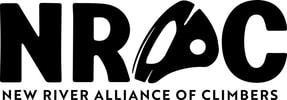
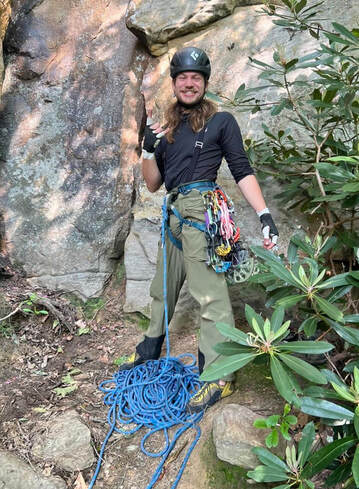
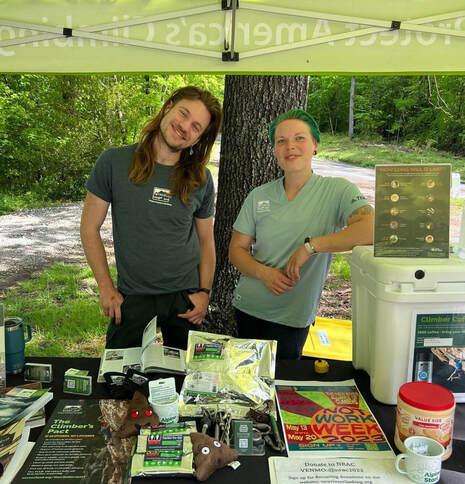
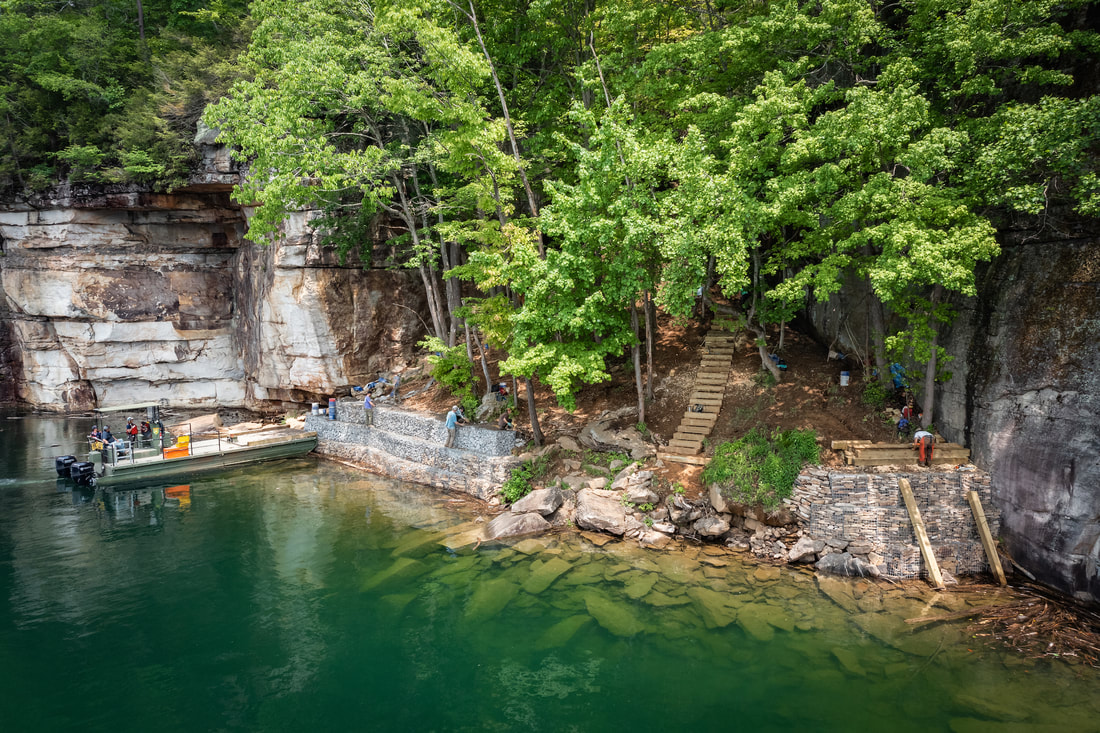
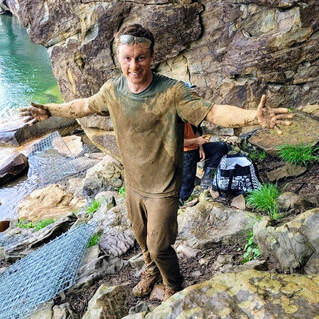
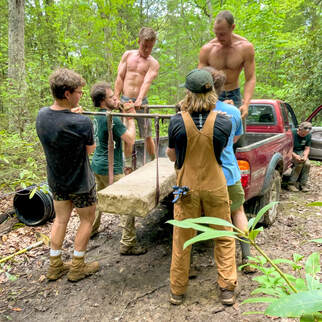
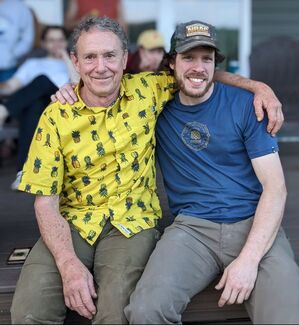
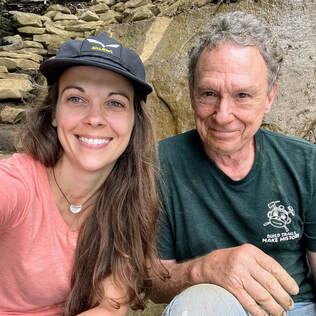
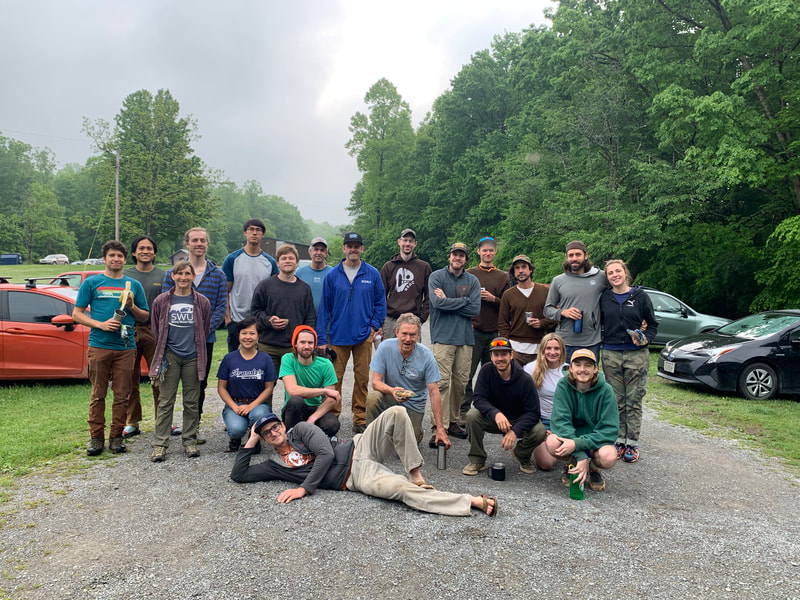
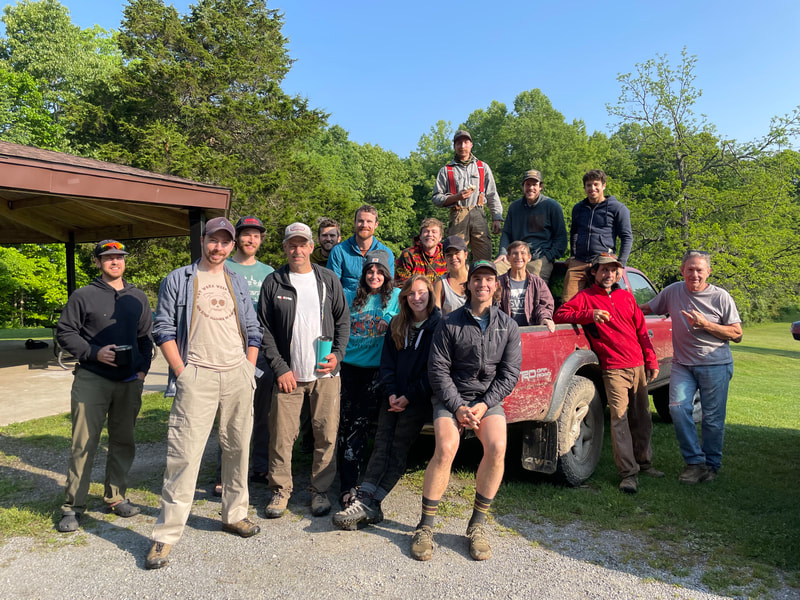
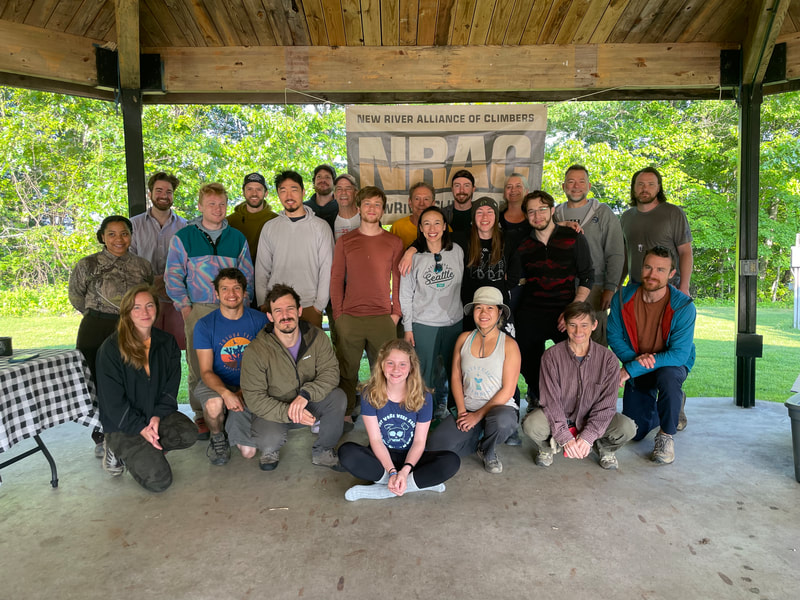
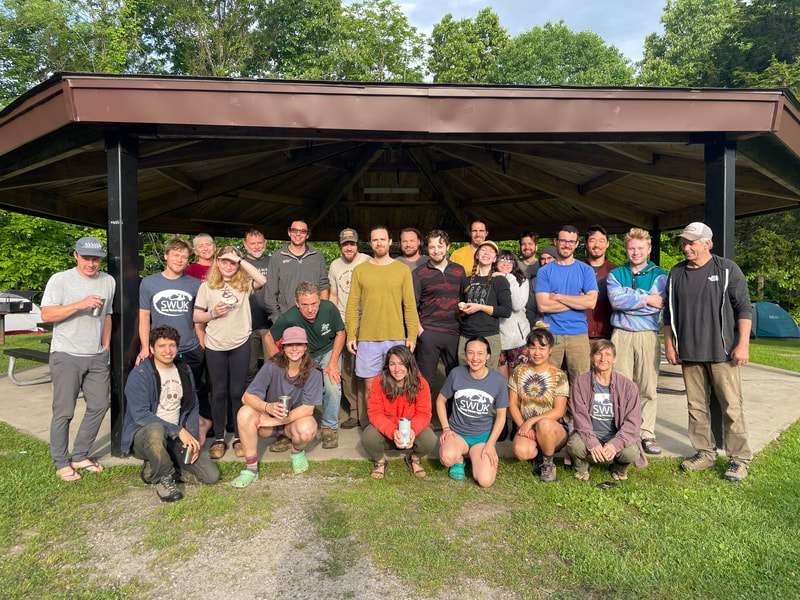
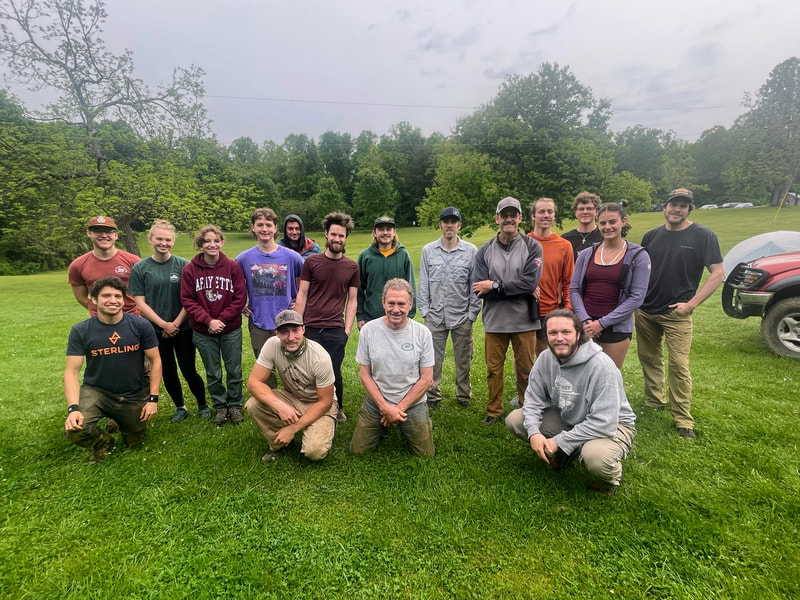
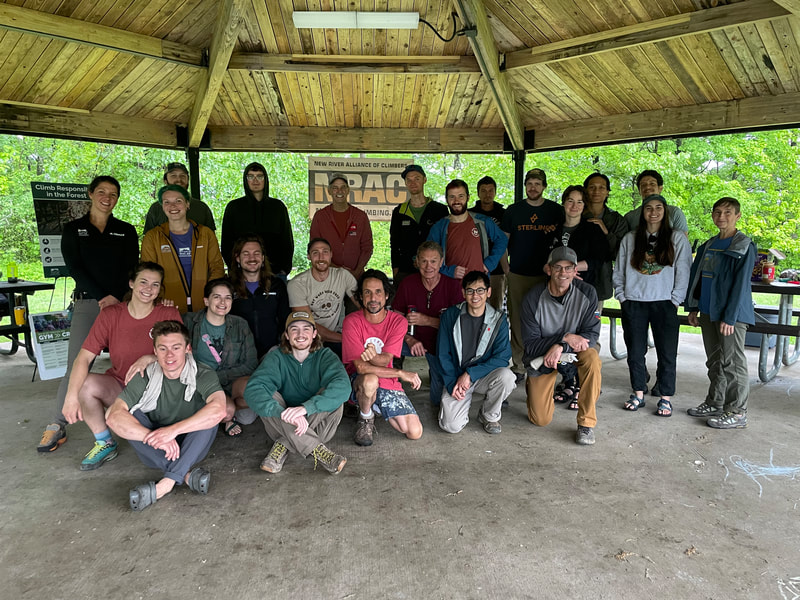
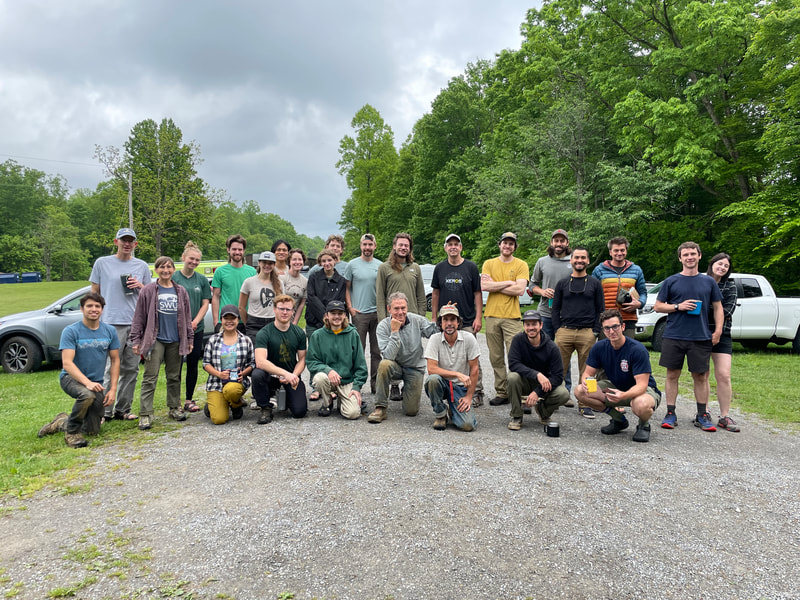
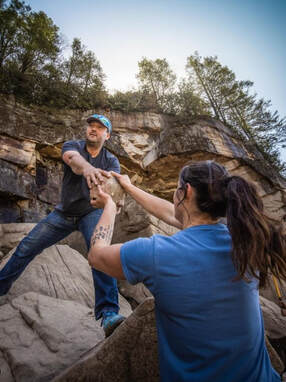
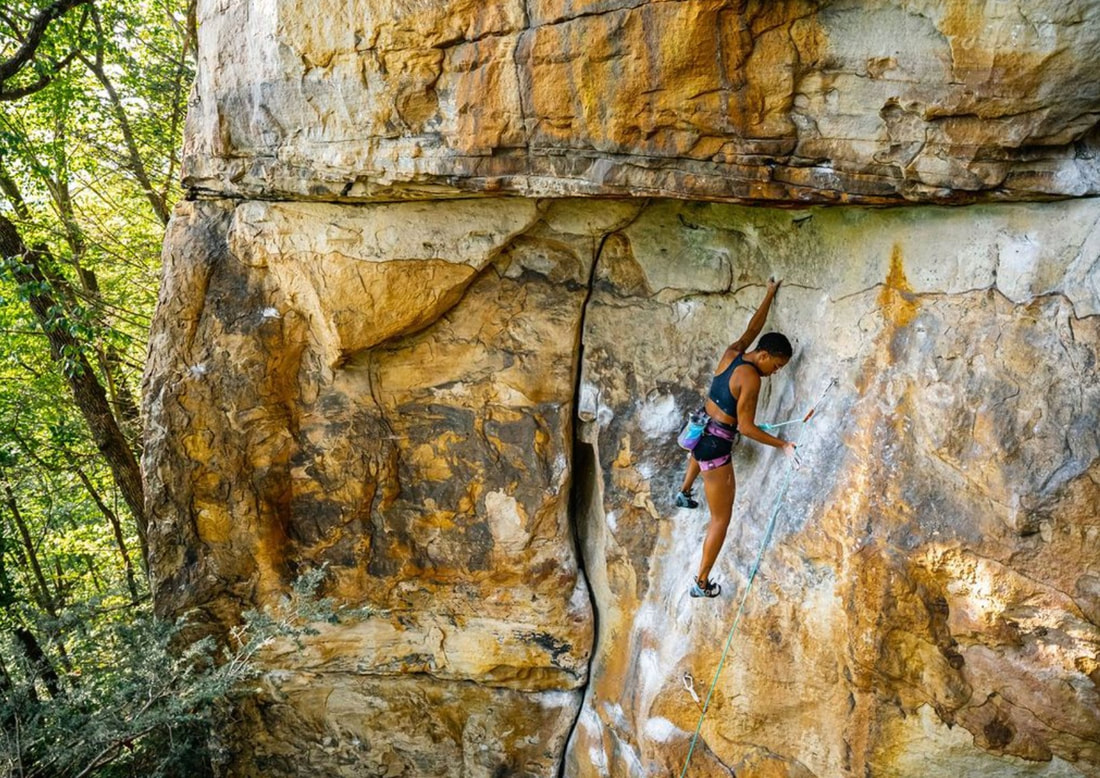
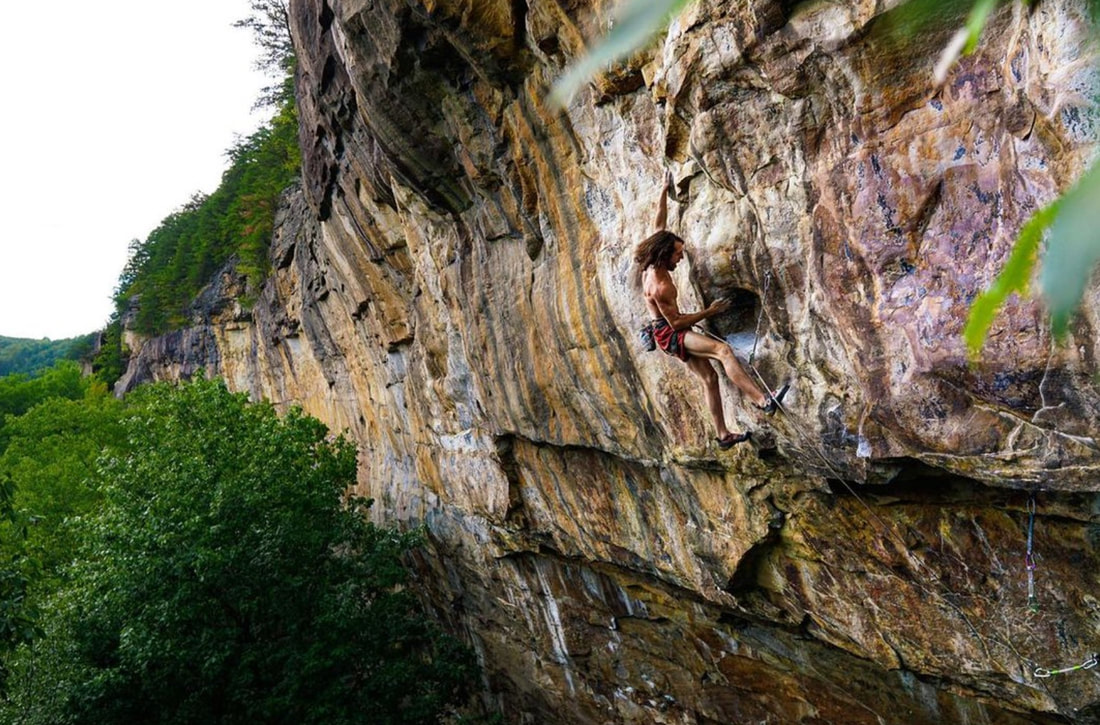
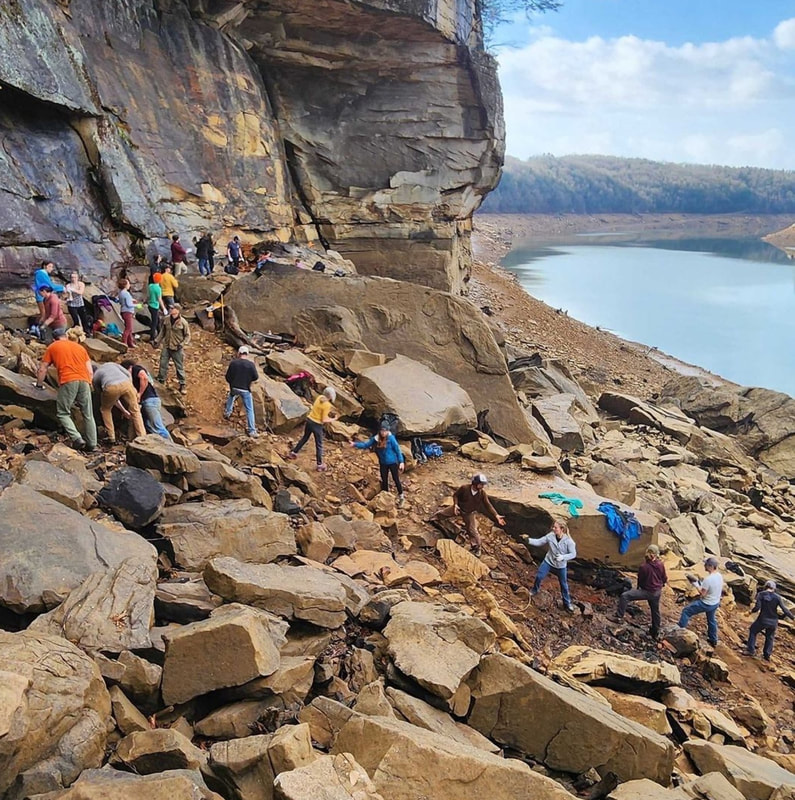
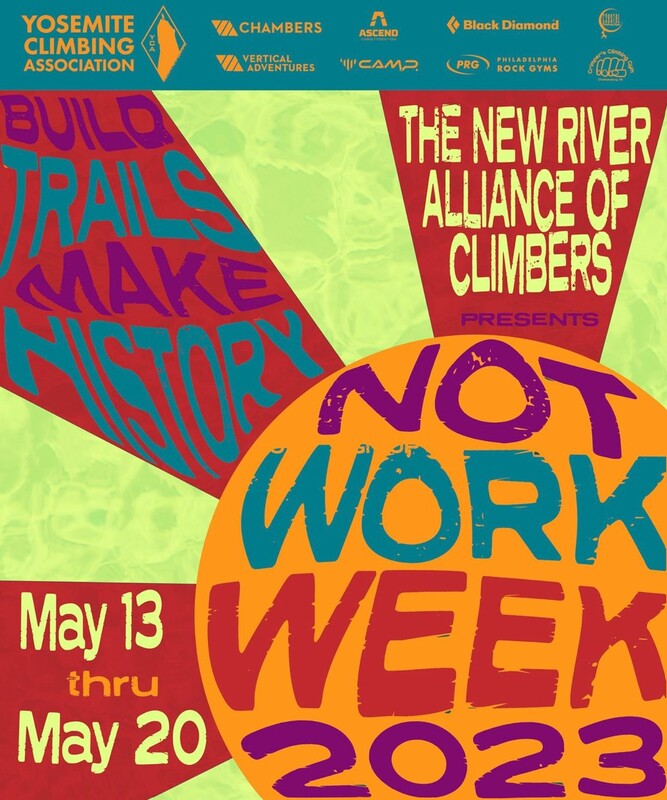
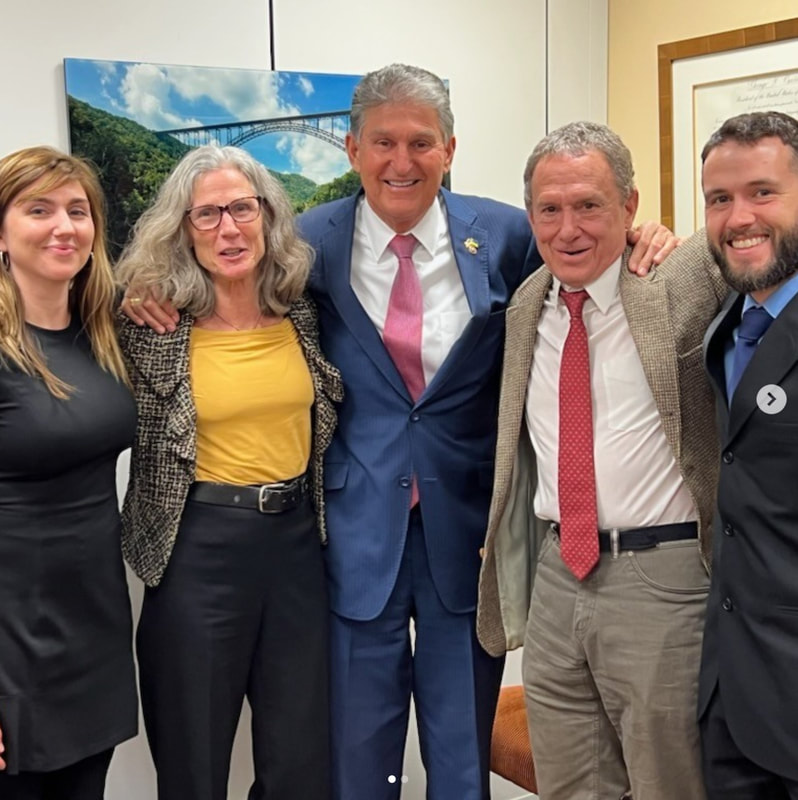
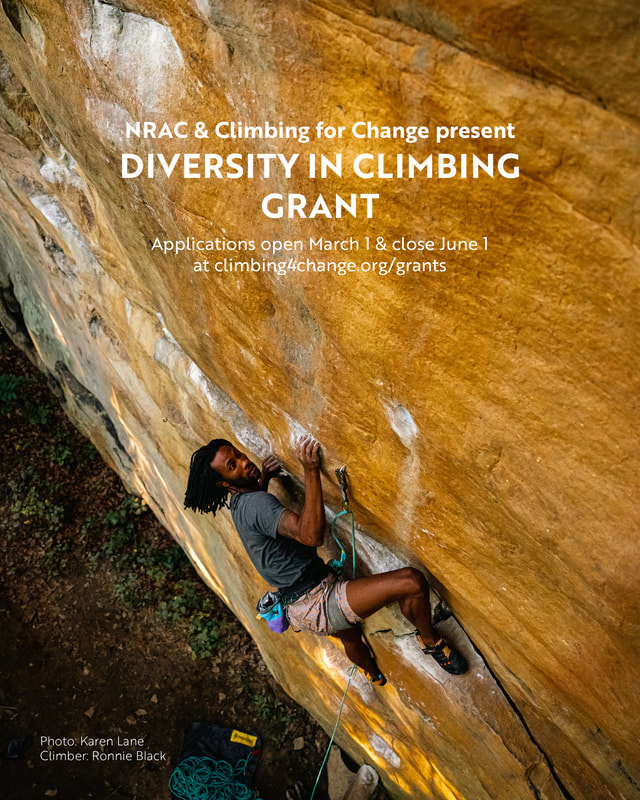
 RSS Feed
RSS Feed